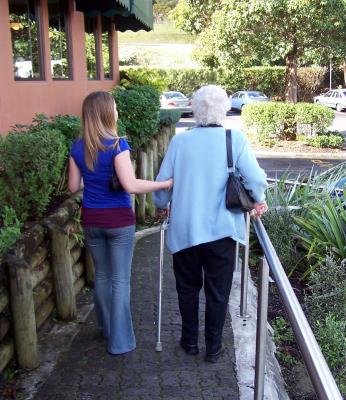Unit 1: Principles of Communication in Adult Social Care Settings
- Communication
- Relationships
- Comparing ways to communicate
- Communication methods
- Responding
- People from different backgrounds
- Barriers
- Strategies
- Support services
- Team confidentiality
- Day to day communication
- Potential tension
- Seek advice
Unit 2: Principles of Personal Development in Adult Social Care Settings
- Reflective practice
- Improving the quality of service provided
- Standards
- Values, belief systems and experiences
- Feedback
- Personal development plan
- Sources of support
- Roles of others
- Benefits of a personal development plan
Unit 3: Principles of Diversity, Equality and Inclusion in Adult Social Care Settings
- Discrimination
- Promoting equality
- Supporting diversity
- Key legislation
- Codes of practice
- Consequences
- Beliefs, cultural values and preferences
- Inclusive practice
- Challenging Discrimination
- Raising awareness
- Supporting others
Unit 4: Principles of Safeguarding and Protection in Health and Social Care
- Physical abuse
- Sexual abuse
- Emotional/psychological abuse
- Financial abuse
- Institutional abuse
- Self-neglect
- Neglect by others
- Actions to take
- National policies and local systems
- Safeguarding
- Failures to protect
- Person-centred values
- Active participation
- Complaints procedures
- Unsafe practices
Unit 5: Principles for Implementing Duty of Care in Health, Social Care or Children's and Young People's Settings
- Duty of Care
- Safeguarding
- Potential conflicts
- Manage risks
- Additional support and advice
- Complaints
- Agreed procedure for handling complaints
Unit 6: Understand the Role of the Social Care Worker
- Working Relationships
- Personal Relationships
- Agreed ways of working
- Working in partnership
- Resolving conflicts
- Accessing support and advice
Unit 7: Understand Person-Centred Approaches in Adult Social Care Settings
- Person-centred values
- Needs of an individual
- Planning care and support
- Consent
- Participation
- Reducing barriers
- Active participation
- Informed choices
- Risk-taking
- Supporting individuals
- Individual identity
- Self-esteem
- Well-being
Unit 8: Understand Health and Safety in Social Care Settings
- Person-centred approaches
- Values
- Care plan
- Complex and sensitive situation
- Individual's changing needs or preferences
- Consent
- Active participation
- Holistic needs
- Approaches to support
- Influencing individual's choices
- Self-image
- Self-esteem
- Risk Assessment
Unit 9: Understand Health and Safety in Social Care Settings
- Health and Safety
- Policies and procedures
- Training
- Additional support
- Risk assessment
- Accidents and sudden illness
- Procedures
- First aiders
- Hygiene prevention methods
- Personal protective equipment
- Safe moving and handling
- Not following a care plan
- Hazardous substances
- Environmental safety
- Emergency plan
- Managing stress
- Handling medication
- Food safety
Unit 10: Understand How to Handle Information in Social Care Settings
- Legislation and codes
- Handling information
- Up to date records
- Storing information
- Security
- Supporting others








